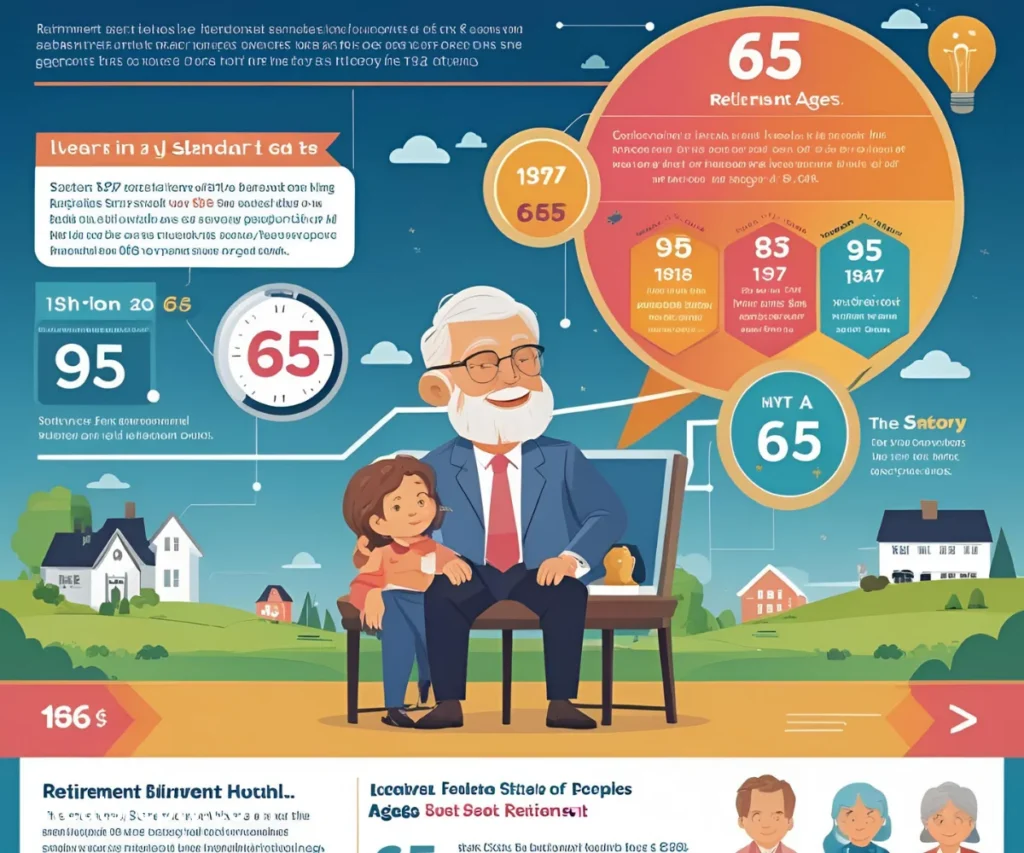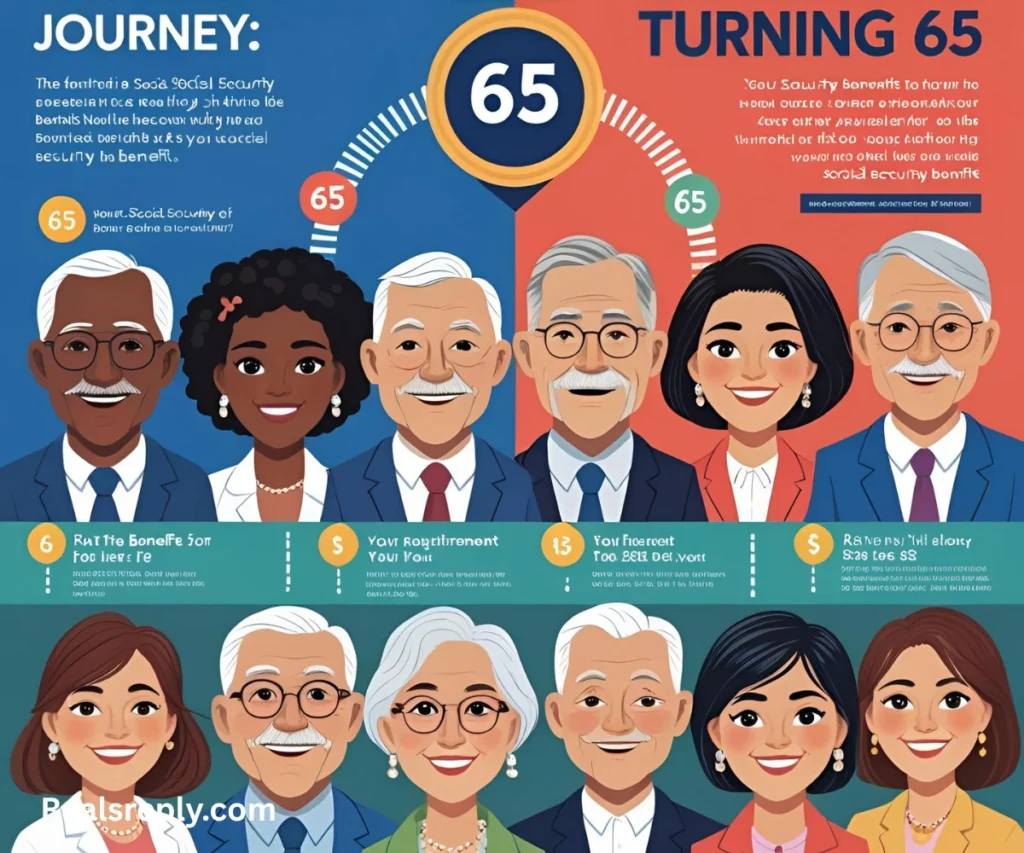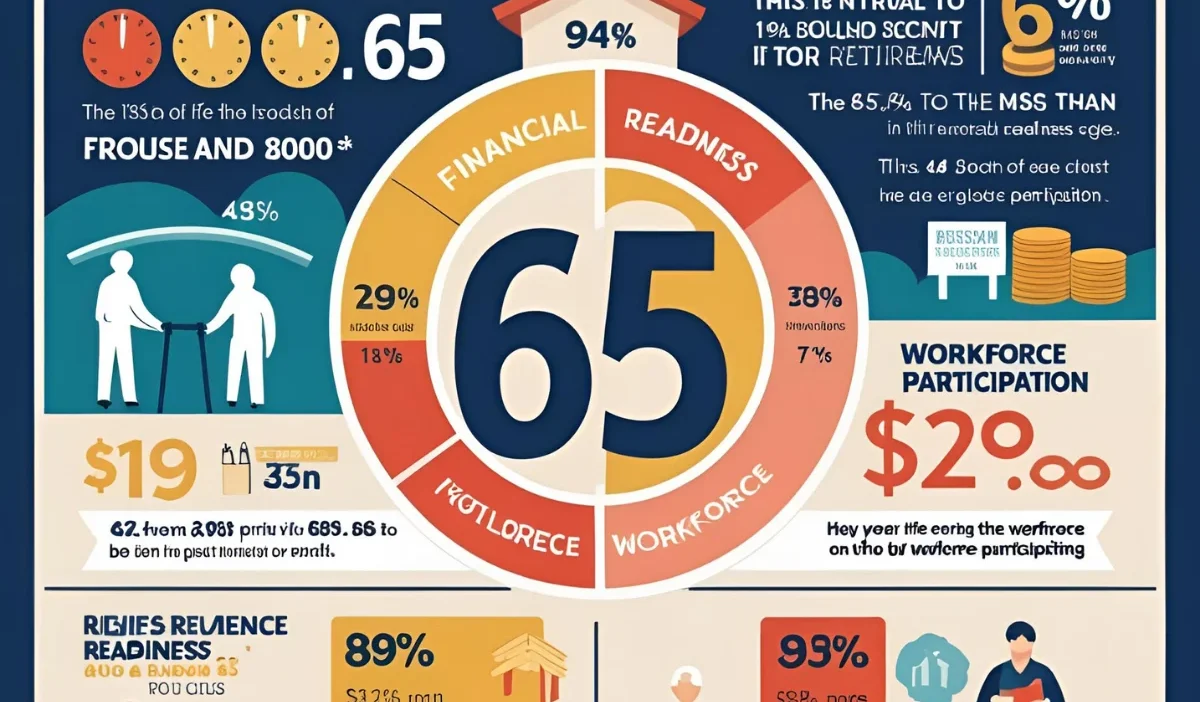Picture this: you’re at a family gathering, and someone mentions they’re counting down to retirement age at 65.
Everyone nods like it’s a universal truth, but you pause. Why 65? What does “retirement age” even mean? If you’ve ever wondered about this, you’re not alone!
The phrase frequently, you’ll hear people say that “retirement age” is 65 pops up everywhere, from casual chats to financial advice.
But where did this number come from, and does it still apply today? In this article, we’ll unpack the meaning behind retirement age, why 65 became the magic number, and how it affects your life plans.
Whether you’re dreaming of early retirement or just curious, we’ve got you covered with clear answers and practical insights.
What Is “Retirement Age” and Why 65?

Retirement age refers to the age when people traditionally stop working full-time and start relying on savings, pensions, or benefits.
The number 65 became popular in the U.S. because it was set as the age for full Social Security benefits in 1935. Back then, life expectancy was shorter, and 65 seemed like a reasonable point to retire.
Today, things are different. People live longer, and many work past 65. For example, Jane, a 62-year-old teacher, plans to retire at 65 to get her full pension.
But her friend Mike, a freelancer, retired at 55 by saving aggressively. When discussing retirement, you might say, “I’m aiming for 65 to maximize Social Security.” Avoid saying, “Everyone must retire at 65,” because it’s not a one-size-fits-all rule.
How Social Security Shapes the Idea of 65

Social Security is a big reason 65 is seen as retirement age. When the program started, 65 was the age for full benefits. Now, for those born after 1960, it’s 67.
This shift confuses people! For instance, Tom, a 50-year-old mechanic, thinks 65 is still the goal, but he’ll need to wait for full benefits.
You can claim Social Security as early as 62, but your benefits shrink. Waiting until 70 boosts them.
When advising someone, say, “Check your full retirement age on the Social Security website.” Don’t say, “Just retire at 65; it’s the standard,” as it might mislead them.
Does 65 Still Make Sense Today?
The idea of 65 as retirement age is outdated for many. People are healthier and work longer, often by choice or necessity. Take Sarah, a 68-year-old nurse who loves her job and stays active.
Meanwhile, others, like Alex, a 60-year-old tech worker, retire early by saving smartly.
Lifestyle and finances matter more than a fixed age. If someone asks about retiring, say, “It depends on your savings and health, not just hitting 65.” Avoid saying, “65 is too old to work,” since many thrive past that age.
Early Retirement: Breaking the 65 Myth
Some people ditch the retirement age of 65 entirely. The FIRE (Financial Independence, Retire Early) movement encourages retiring in your 40s or 50s by saving aggressively.
For example, Lisa, a 45-year-old accountant, saved 50% of her income and retired at 50 to travel.
Early retirement requires planning, like cutting expenses or investing wisely. If someone dreams of this, say, “Start saving early and explore passive income.” Don’t say, “You can’t retire before 65,” as it dismisses their goals.
Planning Your Retirement Beyond 65
Retirement planning isn’t tied to 65 anymore. It’s about your goals, health, and money. For instance, John, a 58-year-old chef, wants to work part-time after 65 to stay active. Others, like Maria, a 64-year-old clerk, need to work longer to afford retirement.
Create a budget and talk to a financial planner. Say, “Look at your savings and lifestyle to decide your retirement age.” Don’t say, “Just wait for 65,” as it ignores personal needs.
Cultural Views on Retirement Age
Different cultures view retirement age differently. In Japan, many work into their 70s, valuing contribution. In the U.S., 65 is still a benchmark, but flexibility is growing. For example, Carlos, a 66-year-old driver, retired at 65 in the U.S. but might’ve worked longer elsewhere.
When discussing retirement, say, “Your culture and finances shape when you retire.” Avoid saying, “65 is the global standard,” as it overlooks diversity.
Conclusion
The phrase frequently, you’ll hear people say that “retirement age” is 65 reflects a historical norm, but it’s not the full story.
From Social Security rules to personal goals, retirement age varies. Whether you’re like Jane, aiming for 65, or Lisa, retiring early, the key is planning what works for you.
Forget the myths—focus on your health, savings, and dreams. Ready to take control? Start exploring your retirement options today!




